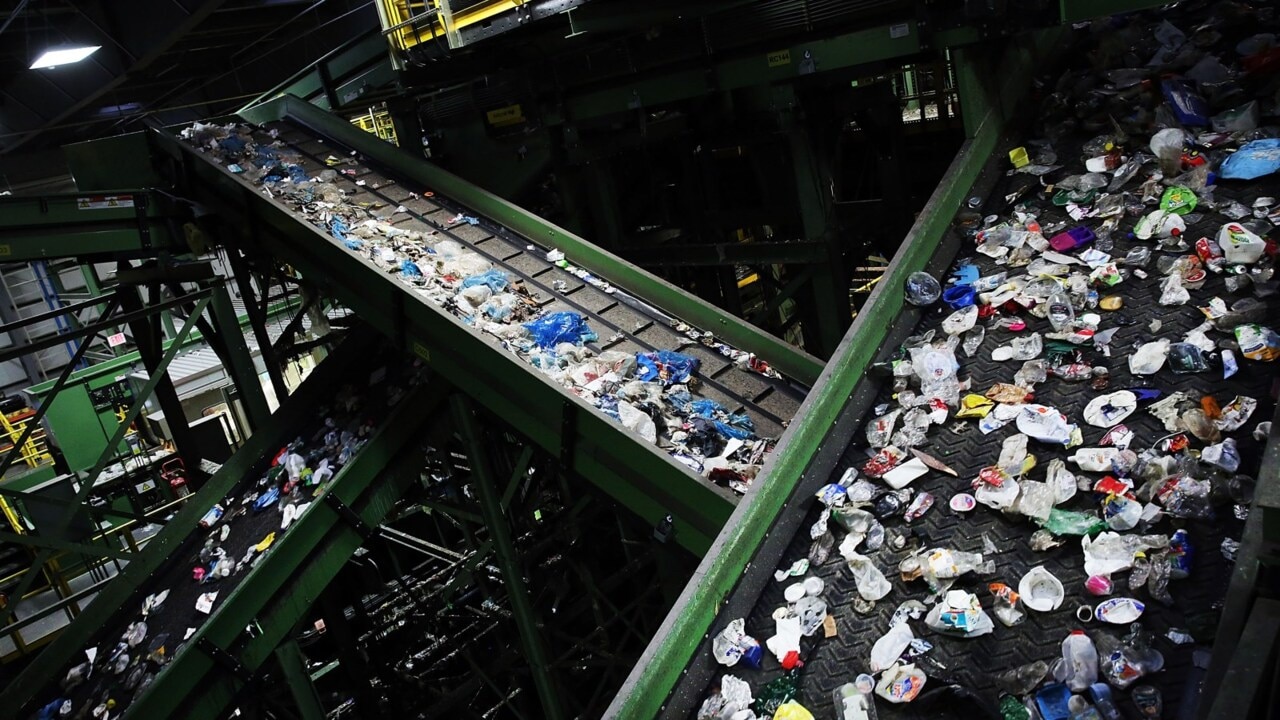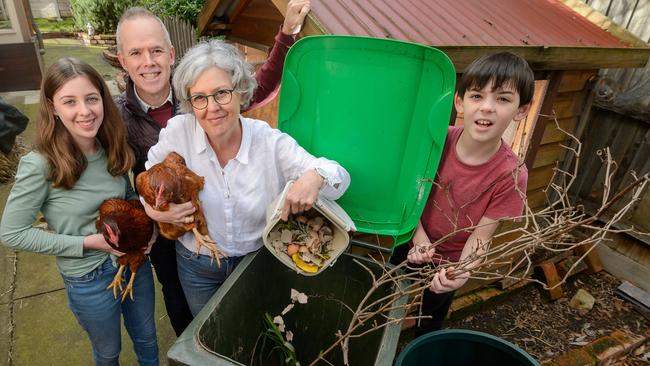How new recycling programs benefit councils, ratepayers
Residents in Melbourne suburbs using special programs to divert food waste away from landfill are set to reap the rewards. See who will benefit from the recycling schemes.

VIC News
Don't miss out on the headlines from VIC News. Followed categories will be added to My News.
Residents in some suburbs could be rewarded with lower council charges with the success of new programs that divert food waste from rubbish tips.
Boroondara Council, which includes Hawthorn, Camberwell and Kew, now diverts 69 per cent of collected garbage from landfill, up from 49 per cent just a few months ago.
The council is among several in Victoria to have introduced a special weekly food and organics, or FOGO, service, which turns the waste into soil conditioner and other products.
But normal weekly landfill rubbish collections have gone to fortnightly, with the justification that food used to take up a lot of bin space.
For Ashburton’s Cate Barry and husband Brendan Baker, recycling has been part of the family’s DNA for ages as they compost most of their food waste.
However, Ms Barry said the FOGO service introduced in May enabled them to recycle stuff like tissues and leftover pizza and bread.
“I thought we didn’t need FOGO because we’ve got chickens and worm farms, but there are things you can’t compost,” she said.

“One of my neighbours said she thought the new system was going to be hard, but she said later ‘You get on with it and it works’.”
Boroondara Mayor Cynthia Watson said that residents were now diverting 20 garbage trucks of food waste a week into their FOGO bins, meaning state government landfill levy charges will drop by up to $1m in 2022-23.
“The savings will flow through to the ratepayer, who ultimately pays for the landfill levy through their waste charge,” she said.
The City of Hobsons Bay, which includes Williamstown, Altona and Newport, introduced FOGO in February and now recycles 65 per cent of collected rubbish compared to 38 per cent in 2019.
Mayor Colleen Gates said the community had responded extremely well to FOGO.
“We are already on track to meet our target of diverting 8000 tonnes from landfill each year.,” she said.
“As well as reducing rubbish volumes, food and garden waste is transformed into a nutrient-rich compost and mulch, which can be returned to gardens to enhance soil health, increase gardening yields and improve water retention.”
MORE NEWS
NEW DEADLY DAY AS STATE HITS RECORD HIGH CASES
WATCH MELBOURNE’S SECOND COVID WAVE GROW
